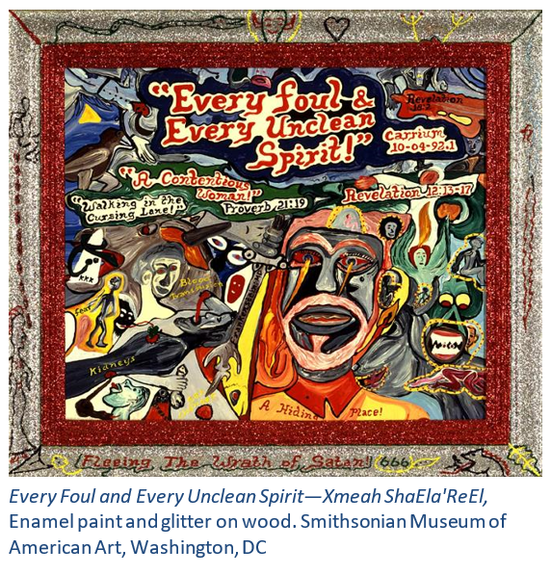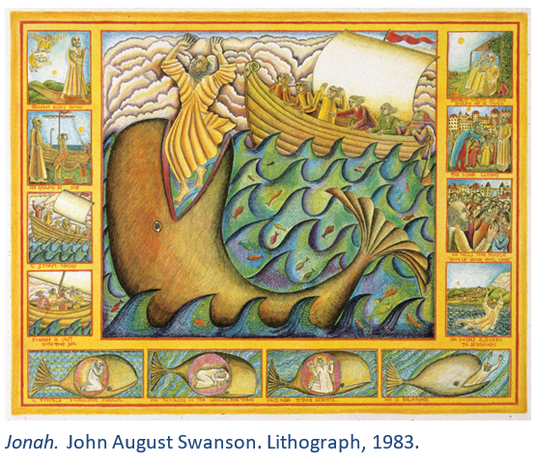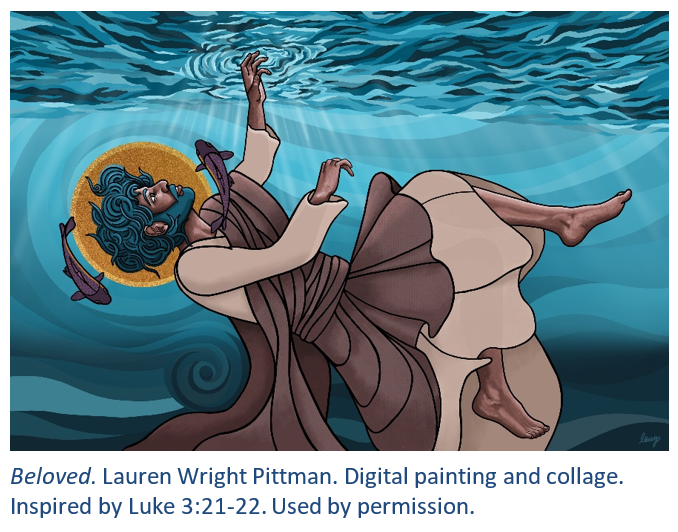 They were all amazed, and they kept on asking one another, “What is this? A new teaching—with authority! He commands even the unclean spirits, and they obey him.” ~Mark 1:27 Authority is grounded in truth-telling—in naming what is even when it hurts, even when it unsettles and storms, even when it seems to raise the temperature before it lowers it. And yet, there is from our faith, this: the truth will set you free. A True word, a divine Word does not need a temple or an army. It sings even in a foreign land. It is an antidote for hopelessness, for despair, for a people unmoored from faith and nation. A true word takes courage not to just hear, but to listen, not just to acknowledge, but to obey. These acts form and recreate the beloved community. They heal us of our dis-ease. They inspire and raise up newness. They connect us deeply with others. Courage breeds courage. Faith breeds faith. Love breeds belonging and peace. Enter into worship. Readings: Deuteronomy 18:15-20 † Psalm 111 † 1 Corinthians 8:1-13 † Mark 1:21-28 https://lectionary.library.vanderbilt.edu/texts.php?id=62 About the Art: Every Foul and Every Unclean Spirit—Xmeah ShaEla'ReEl, Enamel paint and glitter on wood. Smithsonian Museum of American Art, Washington, DC.
0 Comments
 With God is my deliverance and my honor; rock of my strength, my refuge, is in God. ~Psalm 62:7 Let’s be honest. Jonah is a terrible prophet! Resistant, uncaring, easily angered. He wants nothing to do with these Ninevites—capital dwellers of the Assyrian nation. That’s the one that finally ripped the twelve tribes of Israel apart, after all (1 Chronicles 5, 2 Kings 17-18). He has reason to be angry. We might argue there is nothing that would make him happier than to see Assyrians wiped from the face of the earth. Indeed, Jonah admits as much in the story. But he knows the God he is dealing with: “That is why I fled to Tarshish at the beginning; for I knew that you are a gracious God and merciful, slow to anger, and abounding in steadfast love, and ready to relent from punishing.” (Jonah 4:2). In Mark, we find Jesus calling the first disciples—Simon and Andrew among them—and they follow. Immediately. Urgently. I remember a professor wondering about the ways in which we undermine ourselves and the very things we most desire: “What is it we want,” she asked, “and what will we do not to get it?” Jonah seems to go to great lengths. What do we want from this gracious and merciful God, slow to anger, and abounding in steadfast love? Enter into worship. Readings: Jonah 3:1-10 † Psalm 62:5-129 † 1 Corinthians 7:29-31† Mark 1:14-20 About the Art: Swanson, John August. Jonah, from Art in the Christian Tradition, a project of the Vanderbilt Divinity Library, Nashville, TN. https://diglib.library.vanderbilt.edu/act-imagelink.pl?RC=56549 [retrieved January 9, 2024]. Original source: Estate of John August Swanson, https://www.johnaugustswanson.com/.
About the artist:
JOHN AUGUST SWANSON makes his home in Los Angeles, California, where he was born in 1938. He paints in oil, watercolor, acrylic and mixed media, and is an independent printmaker of limited-edition serigraphs, lithographs and etchings. His art reflects the strong heritage of storytelling he inherited from his Mexican mother and Swedish father. John Swanson’s narrative is direct and easily understood. He addresses himself to human values, cultural roots, and his quest for self-discovery through visual images. These include Bible stories and social celebrations such as attending the circus, the concert, and the opera. He also tells of everyday existence, of city and country walks, of visits to the library, the train station or the schoolroom. All his parables optimistically embrace life and one’s spiritual transformation. John Swanson studied with Corita Kent at Immaculate Heart College. His unique style is influenced by the imagery of Islamic and medieval miniatures, Russian iconography, the color of Latin American folk art, and the tradition of Mexican muralists.  And a voice came from heaven, “You are my Son, the Beloved; with you I am well pleased.” ~ Luke 3:22 Jesus hasn’t done anything yet—at least not according to Luke. He has been the object of wonder and joy. He has been welcomed and sung over and presented as a reason for indescribable gratitude. But as of yet he has done nothing…this beloved one. What do you make of this? We know the territory, of course. Whether children or grandchildren, partners or even pets. We know belovedness—that positive regard, that hold on the heart, that gravitational pull of longing and belonging that draws us to shape our lives around someone just because they are, something just because it is. It is both nature and nurture, to be sure. But we know it to be true. How does a weary world rejoice? We trust our belovedness. Do you recognize your own belovedness? Do you believe it? Do you trust it? How does a weary world rejoice? I would guess soul by soul and day by day. But if you ask me, I bet most of it counts. ~Sarah A. Speed @writingthegood, December 4, 2021 Enter into worship this Baptism of the Lord Sunday. Readings: Isaiah 43:1-7 † Psalm 29 † Luke 3:21-22 About the art: Beloved. Lauren Wright Pittman. Digital painting and collage. Inspired by Luke 3:21-22. Used with permission.
From the artist:
Luke’s account of Jesus’ baptism is brief and vague. He was baptized among “all the people” (Luke 3:21) by an unnamed baptizer, and until he prays, the scene is rather unremarkable. During his prayer, however, an iconic scene unfolds with the heavens opening, the Holy Spirit descending in the form of a dove, and a voice booming from heaven. As I considered how I might visually respond to this text, it was difficult to imagine this event with a beginner’s mind. I’ve seen lots of imagery of Jesus in the water with clouds breaking open and a dove descending, or Jesus bursting out of water into a beam of light. These images are powerful, but I wasn’t sure if creating a similar image would be helpful, or if I’d be offering insight into the text that hadn’t already been visually explored. I began to meditate on what was unspoken and implied in Luke’s account, and one moment that stuck out in my imagination was the moment Jesus was underwater. How did Jesus feel when he held his breath and descended into the river? This image offers a snapshot of Jesus right before he steps into his calling, on the threshold of spectacular affirmation. He is completely suspended, embraced, and upheld by the waters of baptism. The water’s surface is choppy. The future is unknown and precarious. His path is a lonely and formidable one, eventually leading to his suffering and death. Despite what is to come, Jesus reaches toward the surface. Two fish are drawn to the light of his halo, foreshadowing his companionship with fishers and his miraculous feeding of the five thousand. All of creation is leaning into his call. This is what trusting your belovedness feels like—muscles and bones relieved of gravity’s burden, serenity, weightlessness, oneness with creation, and the warmth of God’s love permeating every cell of your body and every corner of your soul |
worshipYou'll find here links to weekly worship and, where applicable archived service videos. Archives
April 2024
Categories |
 RSS Feed
RSS Feed